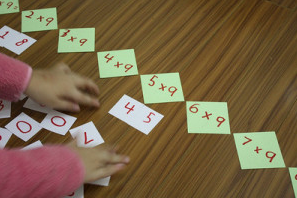Daily recess bill for Florida elementary schools passes House panel
Written By: Leslie Postal
Article Source: Orlando Sentinal
Jan 26, 2106
Florida’s elementary school kids would get 20 minutes of recess a day — every day — under a bill that unanimously passed a Florida House education panel this morning.
More than 30 people, many of them dubbed “recess Moms,” spoke in favor of the bill (HB 833) that would mandate recess in Florida’s public elementary schools.
The bill would require 20 minutes of daily, uninterrupted recess for all students –– a break that could not be taken away for academic or discipline reasons.
“We’re absolutely thrilled,” said Angela Browning, an Orange County mother and a leader in the recess issue, after the House K-12 education subcommittee voted. “We just feel like we’ve finally been heard.”
But Browning said her group is frustrated that the Florida Senate has not yet heard its companion bill and fearful that the chairman of the Senate‘s education committee, Sen. John Legg, R-Lutz, will not schedule it for a vote.
In the House meeting today, several mothers told lawmakers that recess has disappeared from Florida’s schools, to the detriment of their children. They said they have argued for changes with their local school boards but had met with only partial success so became convinced a state law was needed.
They said students, faced with increasing academic demands, need a daily break where they can run around, play and socialize.
“Recess is educational time well spent,” said Kristi Burns, a Lake County mother and one of several local parents who traveled to Tallahassee to push for the bill’s passage.
Lawmakers on the House subcommittee agreed, voting unanimously for the bill, sponsored by Rep. Rene Plasencia, R-Orlando.
Plasencia, an Orange County high school teacher and coach, said he needed to be convinced a lack of recess was an issue — and was by parents from across the state.
“The schools get to decide whether or not they participate in recces,” he said, and too often recess is only recommended and “that means it’s not happening.”
Like Plasencia, several lawmakers said they initially thought local school boards should be in charge of recess policies. But after meeting with parents became convinced state action was needed.
“This should be handled at the local level, but when it’s not handled at the local level… then it is incumbent on us to take on this issue,” said Rep. Janet Adkins, R-Fernandina Beach, the panel’s chairman.






